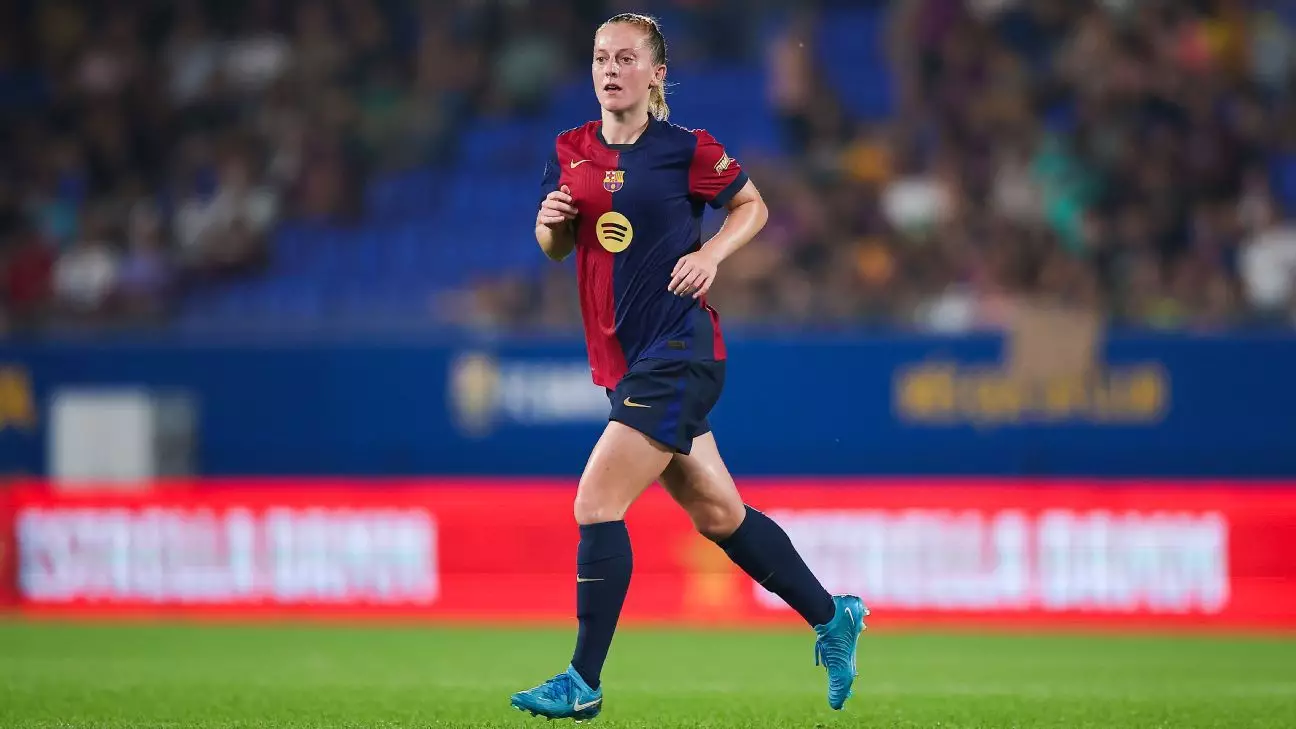In a notable turn of events in the world of women’s football, Barcelona made headlines by rejecting a lucrative offer for England international Keira Walsh as the Women’s Super League (WSL) transfer window drew to a close. This decision has sparked discussions about the evolving landscape of women’s soccer, players’ market value, and Barcelona’s strategic vision moving forward.
The reported interest from Arsenal and Chelsea illustrates the high demand for prominent talents in women’s football. Both clubs are vying for a competitive edge, with Arsenal’s bid allegedly aimed at breaking existing transfer records. Emerging details suggest that this offer was near €1.1 million ($1.2 million), far exceeding the previous women’s transfer benchmark of €800,000 set earlier this year. This particular shift in financial dynamics showcases the increasing investment and commitment directed toward the development of women’s soccer, as clubs are willing to spend substantial sums to secure top-tier talent.
Barcelona’s firm rejection of the offer serves as a statement about their aspirations. By insisting on maintaining their structural integrity as a team, especially after achieving immense success last season, they are demonstrating their unwillingness to compromise on key players, regardless of financial temptations. This unwavering stance signifies a long-term investment rather than just a temporary strategy.
Keira Walsh’s significance extends beyond her presence on the pitch; she represents a core part of Barcelona’s identity as a high-caliber team in women’s sports. Despite her contract expiration at the end of the season, Barcelona has made it clear that their desire to keep her is rooted not only in her technical ability but also in her embodiment of the club’s ethos. Coach Pere Romeu’s assertion that “there is no Keira Walsh issue” serves to reinforce the belief that she is a key figure in their ongoing plans. The management’s confidence in retaining his services, despite interest from her homeland, points to a holistic approach aiming to strengthen team dynamics and continuity.
While Walsh has reportedly been open to returning to England, which could affect her loyalty and commitment in the long run, Barcelona remains hopeful about extending her stay. This tension between personal desire and professional obligation is not new to sport, as many players grapple with decisions that weigh emotional factors against career advancements.
Barcelona’s Broader Strategy in Women’s Soccer
The broader context surrounding Walsh’s situation reflects Barcelona’s ambitious strategy in women’s soccer. The club has established itself as a powerhouse both domestically and in Europe, striving to maintain its esteemed status in the sport. This ambition is evident in their reluctance to weaken their roster after a stellar season, placing immense importance on retaining key talents like Walsh.
Additionally, Barcelona is not alone in its quest for excellence. Clubs like London City Lionesses are rising as serious contenders in the women’s football landscape, seeking to enhance their squads with international talent. The acquisition of players like María Pérez, a World Cup winner, epitomizes the growing ambition and competitiveness among teams aiming for promotion and greater recognition within the sport. The Lionesses, under the ownership of Michele Kang, have made strategic moves to challenge established WSL clubs and highlight the increasing depth of talent in women’s soccer.
The Future of Women’s Football: Challenges and Opportunities
As the women’s game continues to evolve, issues surrounding player transfers, contracts, and club strategies are likely to remain turbulent. With clubs investing unprecedented amounts in female athletes, the competitive landscape is shifting rapidly, causing players to face challenging decisions regarding their careers and affiliations.
Keira Walsh’s situation encapsulates the nuances inherent in modern women’s football, particularly in balancing individual aspirations with club dynamics. The ramifications of Barcelona’s refusal to sell her not only underline their commitment but also raise questions about player agency and the implications of financial power in shaping the future of women’s sports.
The discussion surrounding Keira Walsh reflects broader themes in women’s football – the intersection of ambition, value, and loyalty. As clubs continue to invest heavily in female talent, the narrative will evolve, and Walsh’s fate could very well be a microcosm of the changing tides in the world of women’s football.


Leave a Reply